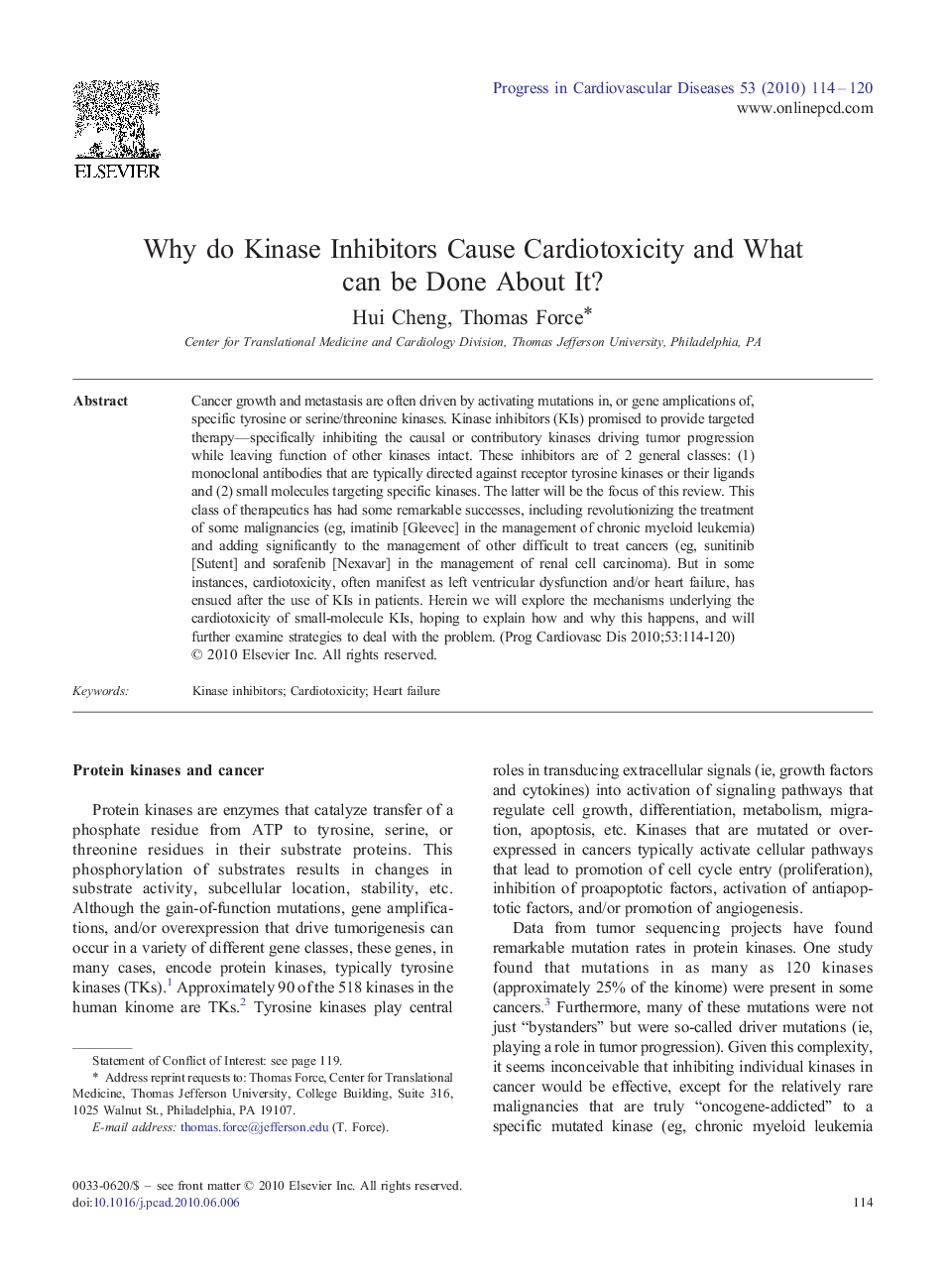| کد مقاله | کد نشریه | سال انتشار | مقاله انگلیسی | نسخه تمام متن |
|---|---|---|---|---|
| 3006899 | 1181016 | 2010 | 7 صفحه PDF | دانلود رایگان |

Cancer growth and metastasis are often driven by activating mutations in, or gene amplications of, specific tyrosine or serine/threonine kinases. Kinase inhibitors (KIs) promised to provide targeted therapy—specifically inhibiting the causal or contributory kinases driving tumor progression while leaving function of other kinases intact. These inhibitors are of 2 general classes: (1) monoclonal antibodies that are typically directed against receptor tyrosine kinases or their ligands and (2) small molecules targeting specific kinases. The latter will be the focus of this review. This class of therapeutics has had some remarkable successes, including revolutionizing the treatment of some malignancies (eg, imatinib [Gleevec] in the management of chronic myeloid leukemia) and adding significantly to the management of other difficult to treat cancers (eg, sunitinib [Sutent] and sorafenib [Nexavar] in the management of renal cell carcinoma). But in some instances, cardiotoxicity, often manifest as left ventricular dysfunction and/or heart failure, has ensued after the use of KIs in patients. Herein we will explore the mechanisms underlying the cardiotoxicity of small-molecule KIs, hoping to explain how and why this happens, and will further examine strategies to deal with the problem.
Journal: Progress in Cardiovascular Diseases - Volume 53, Issue 2, September–October 2010, Pages 114–120